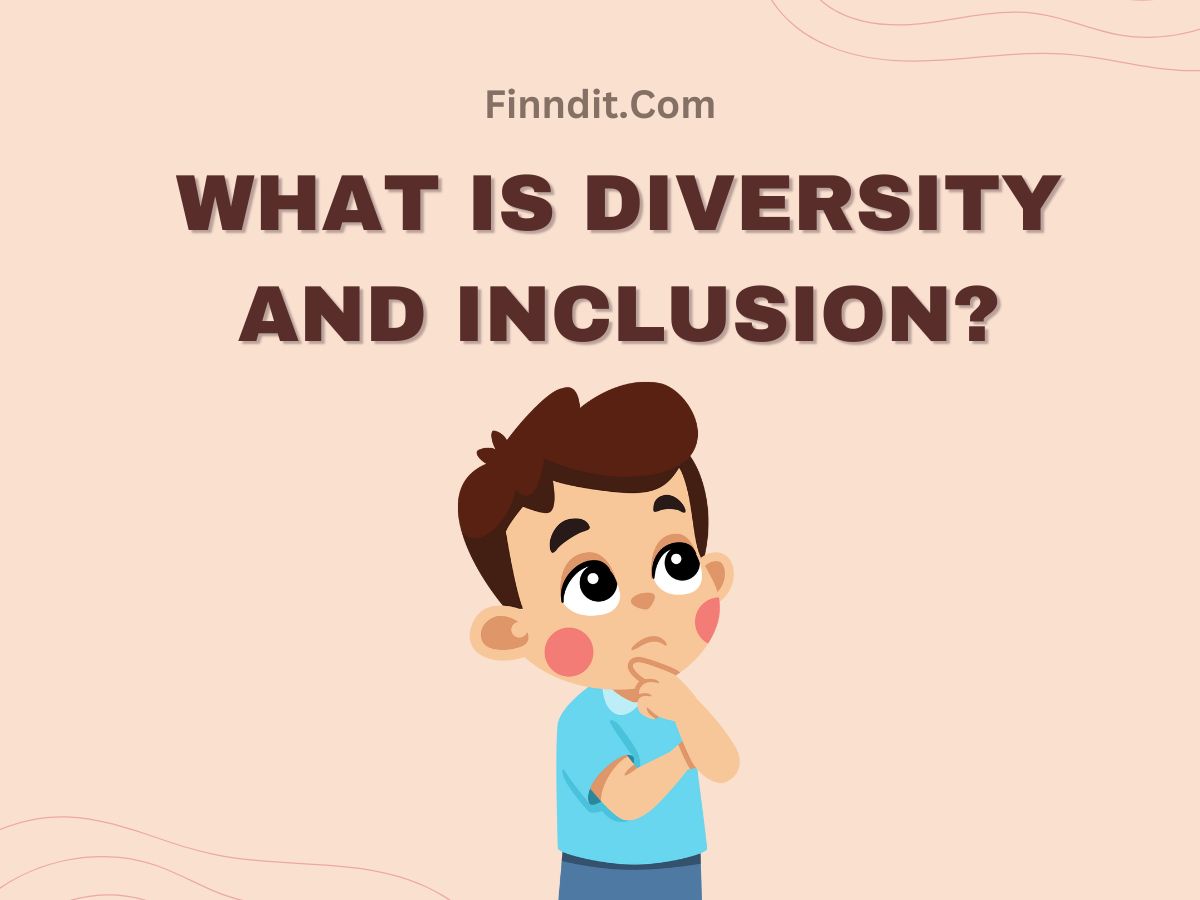What is Diversity and Inclusion?

Diversity and Inclusion (D&I) refers to a commitment to creating a welcoming, inclusive, and respectful workplace of individuals from diverse backgrounds, including but not limited to race, gender, age, ethnicity, religion, sexual orientation, disability, and socio-economic status.
D&I recognizes and values the unique perspectives, experiences, and contributions that each individual brings to the workplace. In this modern era, diversity and inclusion have become critical components of effective workplace management, as they promote fairness, equality, and mutual respect among employees.
Finndit is a leading HR management software that helps organizations foster diversity and inclusion in the workplace.
With its innovative features and tools, Finndit enables organizations to create and implement D&I initiatives that promote a culture of inclusivity, foster diverse perspectives, and drive positive change within the organization.
Diversity and Inclusion initiatives are not just about complying with legal requirements or achieving social responsibility, but also about realizing the benefits that a diverse and inclusive workforce can bring to an organization.
Research has shown that diverse teams are more innovative, creative, and effective in problem-solving. Inclusion, on the other hand, fosters a sense of belonging among employees, which leads to increased employee engagement, productivity, and retention.
Finndit offers a range of features that support organizations in their D&I efforts. For instance, it provides tools for tracking and analyzing workforce diversity data, including demographic information, to identify areas that require attention and action.
It also offers functionalities for creating and managing inclusive recruitment practices, such as blind resume screening and diverse sourcing channels, to ensure that organizations are attracting a diverse pool of candidates.
In addition, Finndit offers training and development modules that promote diversity awareness, unconscious bias training, and inclusive leadership skills among employees and managers.
These modules help organizations build a culture that values diversity and fosters inclusion at all levels, from entry-level employees to senior executives.
FAQs
What is the importance of diversity and inclusion in the workplace?
Diversity and inclusion are important because they promote fairness, equality, and mutual respect among employees.
They also foster innovation, creativity, and effective problem-solving in teams, and contribute to increased employee engagement, productivity, and retention.
How can organizations promote diversity and inclusion?
Organizations can promote diversity and inclusion by implementing inclusive recruitment practices, offering diversity awareness training, unconscious bias training, and inclusive leadership development programs, creating employee resource groups (ERGs), fostering an inclusive culture, and providing equal opportunities for all employees.
What are the benefits of having a diverse workforce?
Having a diverse workforce brings several benefits, including increased creativity, innovation, and different perspectives, improved decision-making, better understanding and catering to diverse customer needs, and enhanced employee engagement, productivity, and retention.
What are some common challenges in implementing diversity and inclusion initiatives?
Some common challenges in implementing diversity and inclusion initiatives include overcoming unconscious bias, managing resistance to change, creating inclusive policies and practices, addressing cultural differences, and ensuring leadership buy-in and commitment to D&I efforts.
How can organizations address unconscious bias in the workplace?
Organizations can address unconscious bias in the workplace through awareness training, providing tools and resources for unbiased decision-making, creating diverse hiring panels, implementing blind resume screening, and fostering a culture of inclusivity and open dialogue.
How can organizations ensure that their recruitment process is inclusive?
Organizations can ensure that their recruitment process is inclusive by using diverse sourcing channels, implementing blind resume screening, providing diversity training to recruiters, creating inclusive job descriptions and requirements, and having diverse interview panels.
What are Employee Resource Groups (ERGs)?
Employee Resource Groups (ERGs) are voluntary groups within organizations that are formed based on shared characteristics or experiences, such as race, gender, ethnicity, sexual orientation, disability, etc.
ERGs provide support, advocacy, and a sense of community for employees while promoting workplace diversity and inclusion.
How can leaders promote inclusive leadership?
Leaders can promote inclusive leadership by setting the tone from the top, actively listening to diverse perspectives, being aware of their own biases, valuing and recognizing diverse contributions, providing equal opportunities for all employees, and fostering a culture of inclusion and belonging.
How can organizations measure the effectiveness of their diversity and inclusion initiatives?
Organizations can measure the effectiveness of their diversity and inclusion initiatives through various metrics, such as workforce diversity data, employee engagement surveys, retention rates, promotion rates, feedback and complaints related to diversity and inclusion, and qualitative feedback from employees.
What are some best practices for creating an inclusive workplace culture?
Some best practices for creating an inclusive workplace culture include promoting leadership commitment to D&I, fostering open and inclusive communication, providing diversity training to all employees, creating policies and practices that promote fairness and equality, offering flexibility and accommodation for diverse needs, and regularly evaluating and improving D&I initiatives based on feedback and results.
In conclusion
Diversity and Inclusion are fundamental principles that create a positive, inclusive, and high-performing workplace.
With the help of innovative HR management software like Finndit, organizations can effectively implement and manage D&I initiatives that promote diversity, foster inclusion, and drive positive change within the organization.
Embracing diversity and inclusion is a moral imperative and a strategic business decision that can improve employee engagement, productivity, and organizational success.
